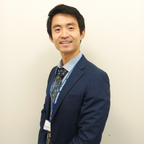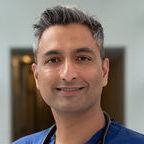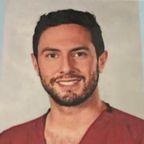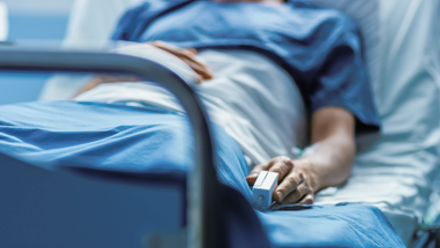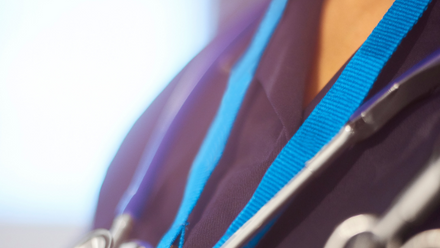Chair: Dr Gemma Talling
About this study day:
Join us online on Thursday 14 November for an overview the latest updates and advances in the care of the general medical patient who may be referred or admitted to your Intensive Care Unit.
The study day will focus upon what brings patients from the general medical specialities into critical care. It will also discuss the diagnostic and treatment conundrums that can arise on the critical care unit leaving you asking yourself how to investigate the patient or whether you should seek a specialist opinion.
A day packed full of interactive talks followed by question-and-answer sessions designed to educate and inform your ongoing management.
Intended audience:
Aimed at Health Care professionals who work in the Intensive Care
Programme topics & learning objectives
- Rheumatology
- Recognise the rheumatological conditions that could cause a critical care admission.
- Learn about the current strategies for managing rheumatological conditions, including the use of aggressive immunosuppression and DMARDS.
- Discuss the difficulties in assessment of disease flare versus sepsis.
- HIV + Infectious disease
- Understand the ways in which patients with HIV can present to critical care.
- Discuss the prognosis of patients with HIV admitted to critical care.
- Appreciate the challenges of the administration of HIV treatment and the side effects of commonly used antiretroviral treatments.
- Renal
- Understand the causes of AKI and the guidelines for its initial management.
- Discuss the investigation and imaging of renal disease patients ‘the diagnostic workup’
- Appreciate outcomes for AKI patients and how can we predict the need for long term renal replacement therapy.
- Gastroenterology
- Understand the evidence for current practices in the management of the upper GI bleeding.
- Discuss the current guidelines and outcomes in the management of decompensated cirrhosis.
- Learn about indications, risks and benefits of parenteral nutrition, the risks associated with its use
- Ophthalmology
- Understand the eye problems that can occur on ITU and how to recognise them.
- Learn about the management of the common pre-existing eye conditions.
- Discuss the strategies for eye protection, the current guidance and how to minimise the risk of eye injury.
- Neurology
- Discuss the management of seizure disorders and the latest advances in management of these conditions.
- Evaluate the use of physical vs chemical restraint of patients on ITU with a neurological condition.
- Discuss the evidence for the management of acute neuromuscular disorders.
- Understand the infectious diseases that can cause neurological impairment and how we can best investigate and treat them.
- Respiratory
- To provide an update on the current management of intrinsic lung diseases
- Discuss the latest guidelines and outcomes for the treatment of interstitial lung disease
- Discussion of the latest guidance for how we can optimise the long stay ITU patient including the latest evidence for weaning strategies.
 Programme
Programme
09:05-09:15 Welcome & general introduction to the day.
Dr Gemma Talling
Dr Megan Fahy
09:15-09.45: Rheumatology Talk
09:45-10:00: Rheumatology Q&A
Dr Erin Vermaak
10:00-10:30: HIV + Infectious diseases Talk
10:30-10:45: HIV + Infectious diseases Q&A
Dr Alessia Dalla Pria
10:45-11:15 Coffee break
11:15-11:45: Renal Talk
11:45-12:00: Renal Q&A
Dr Harry Wakefield
12:00-12:30: Gastroenterology Talk
12:30-12:45: GastroenterologyQ&A
Dr Mathena Vinayaga-Pavan
12:45-1:30 Lunch
1:30-2:00: Ophthalmology Talk
2:00-2:15: Ophthalmology Q&A
Mr Zhi Heng Henry Lin
2:15-2:45: Neurology Talk
2:45-3:00: Neurology Q&A
Dr Thusha Nawasiwatte
3:15-3:45: Respiratory Talk
3:45-4:00: Respiratory Q&A
Dr Dhruv Parekh
4:00-4:15 Closing Remarks
 Group bookings
Group bookings
Group bookings can be made for multiple delegates and paid by credit card via the event booking page.
We are also able to invoice for group bookings of 10 or more delegates, or where the total value is over £1,000. Group bookings can only be made up to 6 weeks in advance of an event and must be paid in full prior to the event date to avoid tickets being cancelled.
To book a group via invoice, please download the form below, complete and return to [email protected].
 Contact us
Contact us
If you have any questions about the event or need any further assitance, please do contact us via:
Telephone: (+44) 0207 280 4350
Email:




